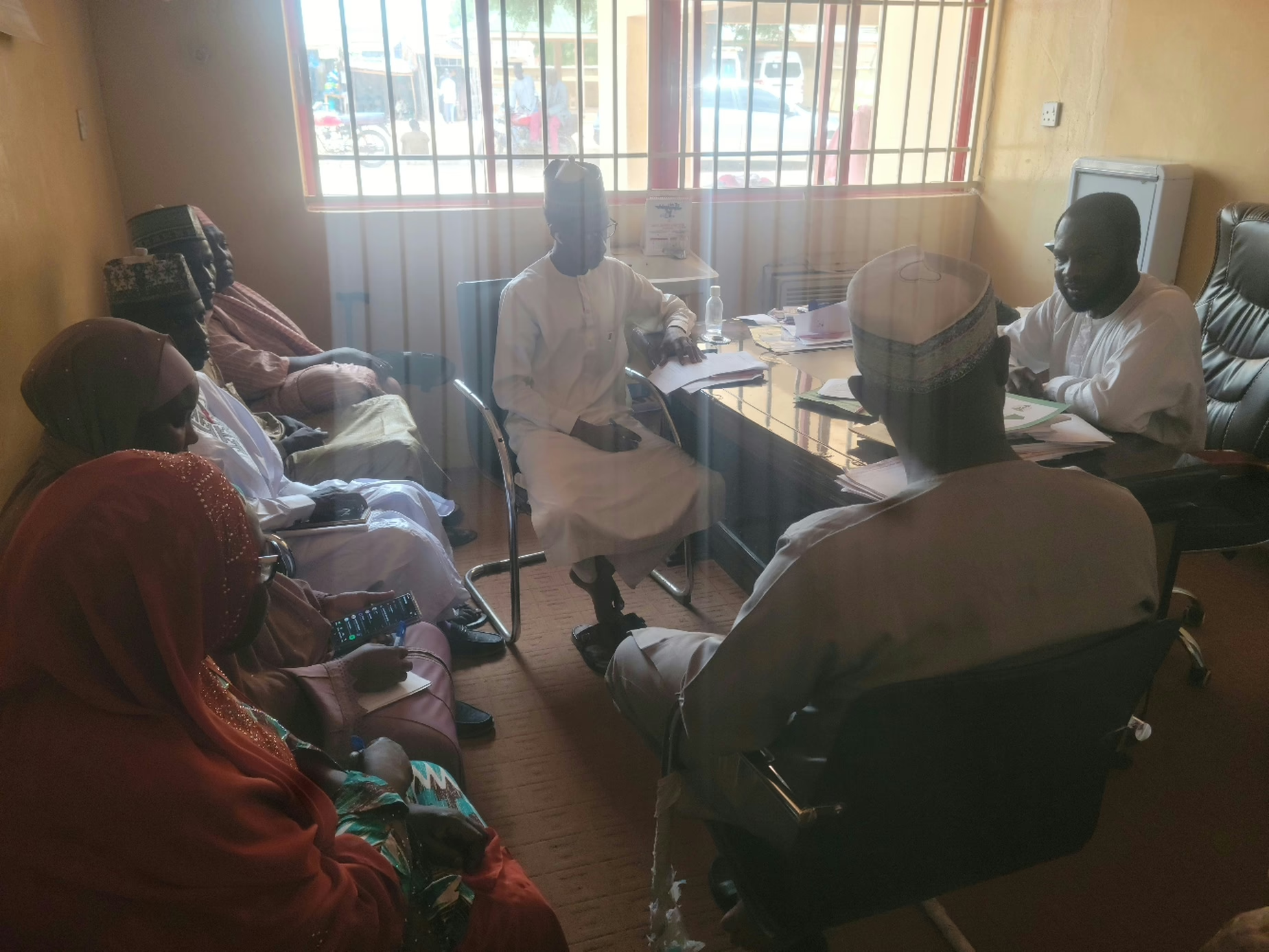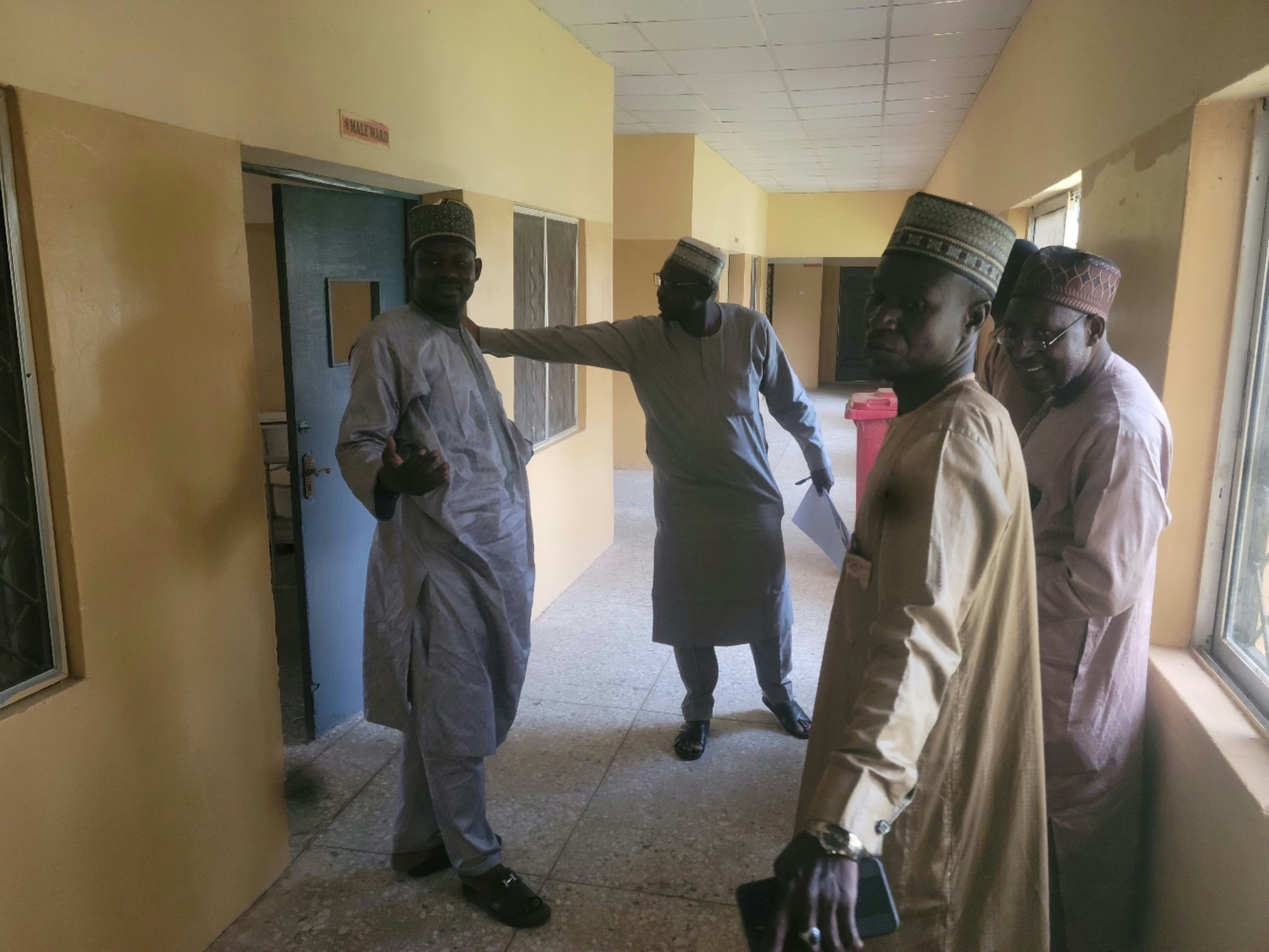Lukman Abdulmalik
A high-powered delegation from the Kano State House of Assembly, the Kano State Contributory Healthcare Management Agency (KSCHMA), and the Kano State Accountability Mechanism KanSlam, has carried out supportive supervision at Kademi Primary Healthcare Centre and Gaya General Hospital under the Maternal and Neonatal Mortality Reduction Innovation Initiative (MAMII).
The Thursday visit was part of the Maternal and Neonatal Mortality Reduction Innovation Initiative (MAMII), which assessed service quality, infrastructure, and staffing in facilities delivering maternal and child healthcare.
The team had Hon. Abubakar Danladi Kademi of the House Committee on Health; Hon. Ali Abdullahi Wudil of Wudil LGA; KSCHMA Chief Nursing Officer, Ismail Nasiru; Secretary of KanSLAM, Dr. Nura Alhaji; and representatives of the Hospitals Management Board.
At Gaya General Hospital, Medical Director Dr. Kabir Yusuf Kabir disclosed that the hospital treated over 6,467 patients in July despite having only two doctors, 92 permanent staff, nine nurses, four midwives, and 16 community health extension workers.
He lamented the absence of a “safe motherhood care” unit but noted the availability of a labour care guide, a newborn corner with equipment, CEMA, and a nutrition corner designed to reduce maternal and child mortality.

Dr. Kabir urged the government to recruit more doctors, nurses, and physiotherapists to address the staffing gap.
Patients who spoke to Stallion Times at Gaya General Hospital said the facility has improved in recent months.
Usman Bala, who brought his brother for treatment, described the experience as “encouraging,” noting better infrastructure and a steady supply of drugs.
“We were received with care, and the patient was treated well.
“He is now recovering,” Bala said.
However, he raised hygiene concerns: “Patients’ beds are often dusty, and some even have blood stains.”
For nursing mother Ummi Habibu, who travelled from the Yola Kazurawa community, the challenge lies in maternal care.
“We have an ANC problem here because there is no dedicated maternity unit,” she explained.
“Both women and men use the same ANC space, whereas there should be separate units.”
She recalled trekking for four hours to Gaya town during her pregnancy whenever no motorcycle was available.
“The stress made me fear complications,” she said, adding that rough, potholed roads sometimes made walking feel safer than riding a bike.
She also lamented that her community’s PHC in Kazurawa Yola is “abandoned and completely non-functional.”
Kademi PHC, recently renovated and benefiting from improved electricity supply, also faces staff shortages, according to 2IC Mutassim Rabiu.

Hon. Abubakar Danladi Isah Kademi, representing Gaya Federal Constituency, said the visit revealed both challenges and progress in the facilities.
“As a lawmaker and member of the State House Committee on Health, I will appeal to Governor Abba Kabir Yusuf to employ more doctors to address the acute shortage in our hospitals,” he stated.
The Kano State Assembly House Committee Chairman on Health, Hon. Ali Abdullahi Wudil, explained that the oversight was prompted by a recent UNICEF report highlighting Kano’s high maternal and child mortality rates.
According to UNICEF, Nigeria accounts for 12% of global maternal deaths, with an estimated 512 deaths per 100,000 live births nationwide, and Kano is among the states with the heaviest burden.
Many of these deaths are preventable with timely access to skilled care, proper equipment, and essential drugs.
“In response, we formed a multi-stakeholder committee, including the Ministry of Health, the State House of Assembly, KanSLAM, KACHIMA, the Primary Healthcare Management Board, the media, and other partners, to tackle these challenges head-on.
“While some facilities are well equipped, many remain critically understaffed, directly contributing to maternal and child deaths.
“We will present our findings to the House and push for urgent reforms, including increased funding and better welfare for health workers,” Hon. Wudil said.
KanSLAM Secretary, Dr Nura, revealed that the visits are part of a wider oversight mission covering five LGAs this week, with more to follow.
He identified recurring issues: inadequate staffing, poor record-keeping, erratic water supply, and non-functional toilets.
“These problems may seem basic, but in maternal and newborn health, they are life-and-death issues.
“A woman in obstructed labour without immediate access to a skilled birth attendant, or a newborn needing warmth and oxygen in a facility with no functional equipment, is at extreme risk,” Dr. Nura stressed.

